-
Benefits of Upgrading Your Electrical Panel
If you live in an older home or are planning new renovations, an electrical panel upgrade might be one of the most important improvements you can make. At Delta Electric, we offer reliable electric panel upgrade services in San Jose, CA, to improve your home’s safety, energy efficiency, and overall electrical performance.
What Is an Electrical Panel Upgrade?
A home electrical panel upgrade involves replacing or enhancing the main panel that distributes power throughout your house. Also known as a breaker box or electrical panel board, this unit manages the flow of electricity to various circuits, ensuring each part of your home receives the appropriate amount of power. Over time, older panels may become outdated, overloaded, or even unsafe—particularly in homes with increased electrical usage due to high-tech appliances, home offices, EV chargers, or HVAC systems. Upgrading your panel helps ensure your electrical system can safely handle current and future energy needs while reducing the risk of outages, surges, or fire hazards.
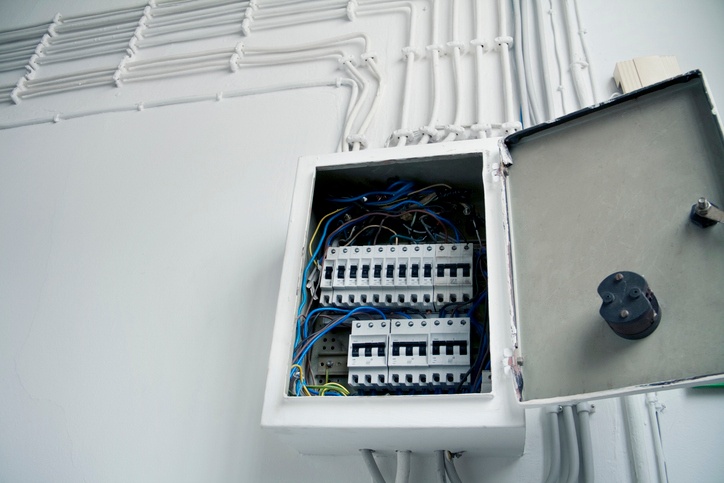
Understanding Electric Panel Upgrades
The electrical panel is the central hub of your home’s electrical system. It contains breakers that shut off circuits in case of overloads or faults. If your panel is struggling to meet demand or shows signs of wear, it’s time to consider a residential electrical panel upgrade. Key reasons to upgrade include frequent breaker trips, overheating panel or burning smells, visible corrosion or damage, and insufficient amps for new appliances.
Types of Electrical Panel Upgrades
Not every upgrade looks the same. Depending on the age of your home, your electrical usage, and future plans, your electrician will evaluate your system and recommend the most appropriate type of panel improvement. Each type of upgrade is designed to enhance performance, increase safety, and ensure your system can meet modern energy demands. Types of upgrades include:
- Full electrical panel replacement for outdated or unsafe units that may pose fire or shock hazards
- Amperage upgrades (e.g., from 100 amps to 200 amps) to accommodate increased power usage from appliances, HVAC systems, or EV chargers
- Subpanel installation for home additions, workshops, or detached garages that need their own circuit control
- Smart panel upgrades that provide remote monitoring, energy tracking, and the ability to manage circuits via smartphone or tablet
Advantages of Residential Electrical Panel Upgrades
Upgrading your home’s electrical panel significantly improves the overall performance and safety of your electrical system. Modern panels use updated, code-compliant equipment that enhances protection against electrical hazards. They also provide the capacity needed to support high-powered devices like HVAC systems, ovens, and electric vehicle chargers. With a properly sized and upgraded panel, your circuits experience less strain, leading to better energy efficiency. As a result, you’re also less likely to deal with common issues like flickering lights or frequently tripped breakers.
The Impacts of Panel Upgrades
An electric panel upgrade impacts your entire electrical system. It ensures that power is distributed safely and consistently, preventing fires, shocks, and other hazards. It also prepares your home for future upgrades, such as solar panel installations or major renovations that require increased power capacity. By upgrading your house electrical panel, you reduce risk and ensure long-term dependability.
Top Benefits of Upgrading Your Electrical Panel
There are clear reasons why a home electrical panel upgrade is a smart investment. As households rely more on modern appliances, smart devices, and energy-efficient systems, older panels often struggle to keep up. A panel upgrade ensures your home can safely handle today’s electrical demands while preparing for future needs. Here are some top benefits:
- Increased home value with modern infrastructure. A new panel makes your home more attractive to buyers and can boost resale value.
- More reliable electrical service for modern appliances. Say goodbye to tripped breakers and power issues when using multiple devices.
- Lower insurance premiums for updated systems. Upgraded panels are safer, which may qualify you for reduced insurance rates.
- Ability to expand or remodel with fewer electrical limitations. A new panel provides the capacity needed for additions, EV chargers, or renovations.
- Peace of mind knowing your home is safer and up to code. Modern panels meet current safety standards and reduce the risk of electrical hazards.
Schedule Electrical Panel Replacement in San Jose, CA
Whether you’re experiencing issues with your current system or planning ahead, Delta Electric offers trusted electrical panel replacement and upgrade services across San Jose and the surrounding areas. We’ll evaluate your current panel, recommend the right solution, and complete the work with safety and efficiency in mind. Fill out our contact form or call us today to schedule your house electrical panel upgrade with one of our experienced technicians.
-
Signs You Might Need Home Electrical Repair Services
Maintaining a safe and functional home electrical system is essential for every household. At Delta Electric, we provide professional residential electrical services in San Jose, CA, to help homeowners identify and resolve electrical issues before they become serious hazards. If you’re unsure whether you need a home electrical repair service, this guide outlines the most important signs to watch for.
What Are Home Electrical Repair Services?
Home electrical repair services involve diagnosing and fixing problems within your home’s electrical systems. This includes everything from wiring issues and faulty outlets to circuit breaker malfunctions and appliance problems. Skilled electricians are trained to identify potential hazards, restore proper function, and prevent future complications through accurate troubleshooting and repair. Whether it’s a minor inconvenience like a flickering light or a major safety concern such as exposed wiring or recurring power loss, working with licensed professionals ensures your home meets current code requirements, operates safely, and remains energy-efficient.
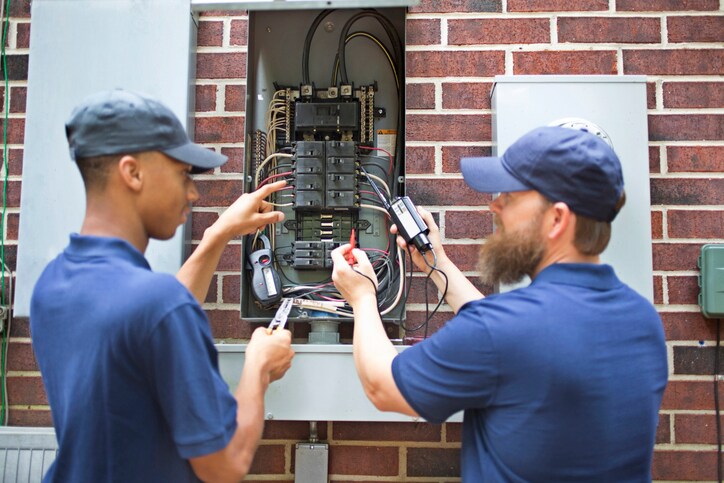
Recognizing Electrical Dangers in the Home
Electrical issues can be dangerous if left unaddressed. Fires, shocks, and appliance failures are just a few of the serious risks that can arise from neglected electrical problems. Flickering lights, buzzing outlets, frequent breaker trips, or a burning smell near switches are all early warning signs that should never be ignored. Knowing how to spot these issues early can help prevent costly damage and protect your home and family from harm. Always treat persistent or recurring electrical problems as red flags and consult a licensed electrician right away for a professional assessment.
The Importance of Home Electrical Repair Services
Electrical work should never be taken lightly or attempted without proper training. Mistakes can lead to more serious damage, void your warranties, or even create hazardous conditions in your home. Hiring a professional ensures that all installations and repairs meet code requirements, that electrical issues are accurately diagnosed, and that the risk of fire or electrical shock is significantly reduced. Most importantly, it provides long-term reliability and peace of mind. Attempting to handle electrical repairs on your own, without the right expertise, can ultimately do more harm than good.
Signs Your Home Needs an Electrical Repair
If your home is showing any of the following signs, it’s time to contact a licensed electrician. These symptoms can indicate faulty wiring, overloaded circuits, or aging components that require attention. Some common indicators include:
- Flickering or dimming lights throughout the house
- Burning smells or discoloration near outlets or switches
- Frequent circuit breaker trips or blown fuses
- Buzzing noises from electrical panels or outlets
- Sparking when plugging in appliances or devices
- Warm or vibrating wall plates
Common Scenarios Requiring Residential Electrical Services
Even if your system seems to be working, certain life events or changes in your home may warrant an electrical evaluation. Preventive electrical inspections are also useful during home sales or major renovations. You may need residential electrical services when:
- You move into an older home with outdated wiring.
- You upgrade appliances and need additional capacity.
- You remodel a room or add new outlets and lighting.
- You install new HVAC or entertainment systems.
- You notice inconsistent performance.
Electrical Repair Services for Home Improvement Projects
Home improvement projects often involve some level of electrical work, whether you’re undertaking a small remodel or a major renovation. Tasks like installing new light fixtures, upgrading outdated electrical panels, rewiring rooms, or adding power outlets for outdoor living spaces are more than just cosmetic improvements—they require technical expertise to ensure everything is safe, code-compliant, and efficient. Working with a qualified, licensed electrical team is crucial. An experienced electrician will not only make sure your electrical system supports your renovation goals but also help future-proof your home by integrating smart technologies and energy-efficient solutions. Whether you’re updating your kitchen, finishing a basement, or enhancing your outdoor areas, skilled electrical professionals ensure your home electrical repairs and upgrades are safe, seamless, and built to last.
Call Delta Electric for Home Electrical Repair in San Jose, CA
At Delta Electric, we specialize in all aspects of home electrical repair and service. Whether you’re addressing urgent issues or planning a home upgrade, our experienced team is ready to help with fast, reliable solutions. Fill out our contact form or call us today to schedule a home electrical repair service with one of our trusted professionals.
-
Tips for Selecting an At-Home Electric Car Charger
Electric vehicles are becoming more common across the country, and homeowners in San Jose, CA, are investing in home electric car charger installations to keep up with the trend. At Delta Electric, we help our customers install EV chargers at home that are efficient, reliable, and compatible with their driving habits. If you’re considering a home charging station for electric cars, understanding your options can save you time, money, and stress.
What Is a Home Electric Car Charger?
A home electric car charger, also known as an EV charging station, allows you to recharge your electric vehicle from the comfort of your driveway or garage. Instead of relying solely on public stations, you gain the convenience of starting each day with a full battery. Home EV charging stations come in a variety of styles and power levels. Some plug into standard outlets (Level 1), while others require special installation and offer faster charging (Level 2). The right solution depends on your vehicle’s battery capacity, how often you drive, and your household’s electrical setup.
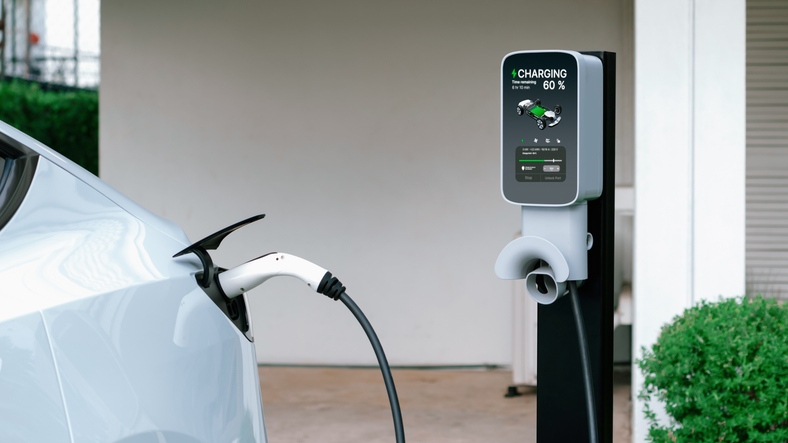
What Is Smart Charging?
Smart charging refers to EV chargers that connect to your home’s Wi-Fi, allowing you to control or schedule charging remotely. This technology is ideal for anyone looking to manage energy use and reduce costs more effectively. With smart charging, you can monitor your energy usage through a mobile app, take advantage of off-peak utility rates by scheduling your charging times, and receive real-time updates about battery levels or any system issues. Altogether, smart charging helps you optimize your EV charging experience while also lowering your carbon footprint.
What Are the Benefits of Installing an EV Charger at Home?
Whether you’re a daily commuter or weekend driver, electric car charging makes it easy to stay powered up, and installing a home charging station for electric cars provides a range of benefits. For most EV owners, it’s one of the most practical upgrades they can make. Advantages include:
- Convenient overnight charging from your own home
- Savings compared to public charging stations
- Increased home value and appeal to future buyers
- More predictable and consistent charging performance
Tips for Selecting an At-Home Electric Car Charger
Choosing the right charger is essential for safe and effective use. There are several important factors to keep in mind when exploring your options, and consulting with a licensed electrician can help you identify what works best in your home. To select the best charger for your needs:
- Check compatibility with your vehicle model
- Consider charging speed (Level 1 vs. Level 2)
- Look for smart features such as Wi-Fi or app connectivity
- Determine if you need a portable or wall-mounted unit
- Evaluate your home’s electrical system for upgrade needs
How to Choose the Right Home EV Charging Station
Beyond features and speed, it’s important to consider your lifestyle and how frequently you need to charge your vehicle. A reliable electric car charger should complement your daily driving habits. For example, if you drive long distances each day, a charger that can deliver quick overnight charging may be essential. If your EV is a secondary vehicle used only part-time, a slower, more budget-friendly option might suffice. If you anticipate charging multiple EVs from the same unit in the future, you’ll want a charger with the capacity to handle that demand. Thinking through these factors will help you choose a solution that’s both efficient and cost-effective.
What’s the Difference Between AC and DC Chargers?
AC (alternating current) chargers are most common in residential settings and include both Level 1 and Level 2 options. DC (direct current) fast chargers are typically found in commercial or public stations and are capable of charging an EV in under an hour. AC chargers are more affordable and easier to install, while DC chargers require special infrastructure and are better suited for high-volume, rapid charging needs. Home installations almost always use AC for practicality and cost-efficiency.
Install a Home EV Charging Station in San Jose, CA
If you’re ready to install an EV charger at home, the professionals at Delta Electric are here to help. Our licensed electricians provide expert guidance on product selection, installation, and long-term maintenance. Interested in upgrading to a home electric car charger? Fill out our contact form or call us today to speak with our team and schedule your EV charger installation.
-
Reasons You Should Upgrade Your Home’s Lighting
Reasons You Should Upgrade Your Home’s Lighting
Lighting is an essential part of every home. It not only brightens your living spaces but also influences mood, functionality, and the overall aesthetic of your home. Whether you’re considering a simple switch to LED bulbs or a complete overhaul of your fixtures, there are countless benefits to upgrading your home’s lighting. Today we will explore your home lighting, and reasons why you might want to consider home lighting upgrades.
What is Home Lighting?
Home lighting refers to the systems and fixtures that illuminate your home. It’s not just about brightening a space; lighting also sets the ambiance, enhances decor, and ensures safety. With advancements in technology, modern lighting solutions have evolved to include energy-efficient technologies like LED lighting, smart systems, and customizable designs tailored to suit your lifestyle and preferences. Thoughtful lighting design can transform the feel of your home, making it more inviting, functional, and energy efficient.
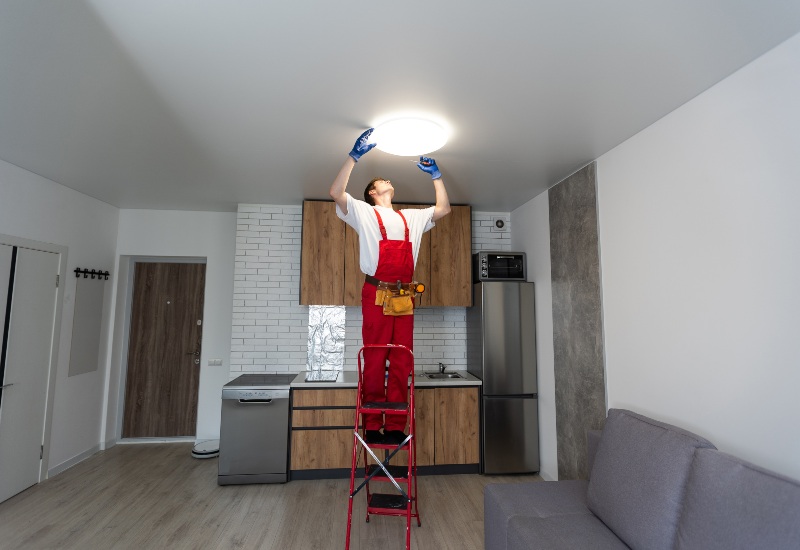
Complete Guide to Home’s Lighting Upgrades
Upgrading your home’s lighting starts with a thorough evaluation of your current setup and identifying areas where improvements can be made. Begin by assessing each room in your home to determine its specific lighting needs. For example, kitchens and workspaces require bright task lighting, while living rooms and bedrooms often benefit from softer, ambient light. Next, explore energy-efficient options, such as LED light upgrades, which provide long-lasting performance while significantly reducing energy costs. Incorporating smart lighting systems can elevate your home’s functionality, allowing you to control your lighting remotely or set customized schedules and scenes.
Reasons You Should Upgrade Your Home’s Lighting
Upgrading your home’s lighting offers a variety of compelling benefits. One of the most significant reasons is energy efficiency. By replacing traditional incandescent bulbs with LEDs, you can enjoy substantial savings on your energy bills while reducing your environmental footprint. Upgraded lighting also enhances the aesthetic appeal of your home. Modern fixtures and thoughtfully designed lighting plans can breathe new life into your space, making it more attractive and enjoyable.
Functionality is another reason to upgrade. Good lighting improves the usability of every room, whether it’s for cooking, reading, or relaxing. Additionally, upgraded lighting increases the value of your property, making it more appealing to potential buyers. Beyond the practical and financial benefits, improved lighting contributes to a healthier environment by reducing energy waste and using sustainable materials.
Signs You Should Upgrade Your Home Lighting
Sometimes, it’s not just about wanting better lighting—it’s about needing it. Flickering or dimming lights are often signs of outdated or faulty fixtures that should be replaced. High energy bills may indicate that your current lighting is inefficient and costing you more than necessary. Outdated fixtures can also detract from the overall appearance of your home. Poorly lit areas, especially in kitchens, hallways, or outdoor spaces, can limit the functionality and safety of your home. If you’ve been considering a more modern or stylish look for your interiors, upgrading your lighting can be the perfect solution.
Top 5 Reasons to Upgrade the Lighting in Your Home
- Save on Energy Costs: One of the primary benefits of upgrading your lighting is the potential for significant energy savings. Switching to LED lighting can dramatically reduce electricity consumption compared to traditional incandescent bulbs. LEDs not only use less power but also last much longer, which means fewer replacements and lower overall costs.
- Boost Home Appeal: Upgraded lighting fixtures can completely transform the look and feel of your home. Modern designs and thoughtfully placed lights enhance your decor, creating a more polished and inviting atmosphere. Whether it’s a sleek chandelier in the dining room or recessed lighting in the living area, new fixtures add a touch of sophistication to any space.
- Increase Safety: Proper lighting is essential for maintaining safety both indoors and outdoors. Dimly lit areas can increase the risk of accidents, especially in stairways, hallways, or outdoor walkways. Improved lighting also enhances security by illuminating dark corners and entry points, deterring potential intruders.
- Enhance Mood and Productivity: Good lighting has a direct impact on mood and productivity. Bright, natural-like light can improve focus and energy levels, making it easier to work, read, or complete tasks. On the other hand, soft, ambient lighting helps create a relaxing environment, perfect for unwinding after a long day.
- Future-Proof Your Home: Upgrading your lighting is a smart investment in the future. Modern lighting solutions, such as LED systems and smart technologies, align with current energy standards and technological advancements. By adopting these innovations, you ensure your home remains efficient and up to date for years to come.

Steps to a Successful Upgrade
To successfully upgrade your home’s lighting, start with a well-thought-out plan. Identify the areas that need improvement and establish a budget that accounts for both fixtures and installation. Select lighting options that balance style and functionality, ensuring they meet the needs of your home’s design and usage requirements. Consulting with professionals, such as the experienced team at Delta Electric, is highly recommended to ensure that your upgrade is completed safely and efficiently. Once the installation is complete, take the time to test your new lighting to confirm that it meets your expectations and enhances your home as intended.
Schedule an Appointment at Delta Electric Today
Are you ready to upgrade the lighting in your home? Delta Electric in San Jose, CA, specializes in home lighting upgrades and is here to help you every step of the way. Whether you’re looking for home upgrades to light fixtures, LED light upgrades for your home, or an entirely new lighting plan, our skilled team has the expertise to deliver exceptional results. Don’t wait to enjoy the benefits of improved lighting. Contact Delta Electric today. Let us help you light the way to a brighter, more efficient home.
-
Dangers of an Overloaded Circuit
Dangers of an Overloaded Circuit
Have you ever noticed your lights flickering or your circuit breaker tripping unexpectedly? These could be signs of an overloaded circuit, a common but often overlooked issue that can lead to serious problems. At Delta Electric, we’re here to make electrical safety easy to understand and manage. Today we’ll explore what causes overloaded circuits, why they’re dangerous, and how you can keep your home or business running smoothly and safely. With a little knowledge and the right support, protecting your property from electrical hazards is simpler than you think.
What is an Overloaded Circuit?
An overloaded circuit occurs when the electrical demand placed on a circuit exceeds its designed capacity. This happens when too many devices or appliances draw power from the same circuit, causing the wiring to overheat. Overloaded circuits can lead to significant issues, including tripped circuit breakers, damaged wiring, or even electrical fires. Knowing the signs of an overloaded circuit and addressing them promptly can prevent these problems from escalating.
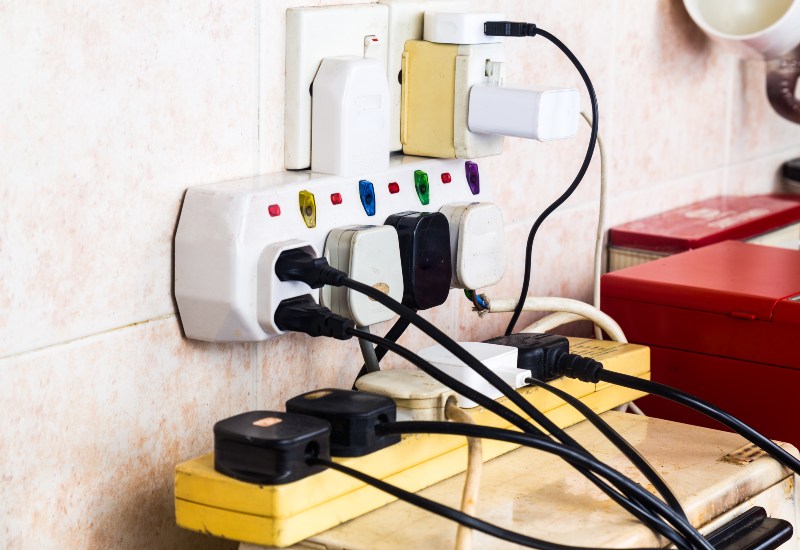
Dangers of an Overloaded Circuit
The dangers associated with overloaded circuits are numerous and potentially severe. One of the most alarming risks is the possibility of electrical fires. When wires overheat due to excessive demand, they can ignite, posing a serious threat to your home or business. Additionally, overloaded circuits can damage sensitive electronics and appliances, often rendering them unusable or requiring costly repairs. Faulty wiring caused by overloading also increases the risk of electrical shocks, which can cause injury. Furthermore, circuit overloads can lead to power outages, leaving parts of your property without electricity and disrupting your daily routine or business operations.
Recognizing the Signs of an Overloaded Circuit
It is important to recognize the warning signs of an overloaded circuit to address the issue before it becomes a major hazard. Some common indicators include flickering or dimming lights, which occur when the circuit struggles to provide consistent power. Circuit breakers that trip frequently or fuses that blow often are another red flag, signaling that the electrical demand is too high for the circuit to handle. Buzzing sounds near outlets or switches, as well as warm or discolored outlets, are additional warning signs. In more severe cases, you may notice a burning smell emanating from electrical outlets or devices, which requires immediate attention.
How to Check for a Circuit Overload
Checking for a circuit overload involves a systematic approach to identifying the problem. Start by locating your electrical panel and identifying the specific circuit breaker that trips frequently. Once you’ve pinpointed the affected circuit, unplug all devices connected to it and take note of their wattage. Compare the total wattage of these devices to the circuit’s capacity, which is typically 15 or 20 amps. If the total wattage exceeds the circuit’s capacity, you’ve identified an overload. To confirm, you can plug devices back in one at a time while monitoring the circuit’s behavior.
Issues Caused by Circuit Overloads
The issues caused by circuit overloads extend beyond immediate inconveniences. Repeated overloading can wear out circuit breakers, reducing their effectiveness and increasing the likelihood of future problems. The excessive heat generated by overloaded circuits can melt or damage the insulation around wiring, creating additional fire hazards. Appliances and electronics connected to an overloaded circuit may also malfunction more frequently, leading to expensive repairs or replacements. These issues underscore the importance of addressing circuit overloads promptly and thoroughly.

How to Prevent Overloaded Circuits
Preventing overloaded circuits is an achievable goal with the right strategies. One of the most effective methods is to distribute electrical loads evenly across circuits, avoiding the use of multiple high-wattage devices on the same outlet or circuit. Having dedicated circuits for major appliances is an important strategy for preventing circuit overload. These kinds of appliances include refrigerators, electric stoves, electric ovens, air conditioners, electric furnaces, washers and dryers, and sump pumps. Upgrading your electrical panel can also help, especially if your property’s electrical system is outdated and unable to meet modern energy demands. Using high-quality surge protectors can manage sudden electrical surges and reduce the risk of overloading. Finally, scheduling regular inspections with a professional electrician ensures that your electrical system remains in good condition and capable of handling your energy needs.
Contact Delta Electric for Overloaded Circuit Solutions
If you’re dealing with an overloaded circuit or have concerns about your electrical system, Delta Electric is here to help. Our team of skilled electricians specializes in diagnosing and resolving issues related to overloaded circuits, ensuring your property remains safe and functional. Whether you’re looking for advice on how to fix an overloaded circuit or need professional intervention to address a persistent problem, we have the expertise to provide effective solutions.
Let’s Keep Your Property Safe!
Don’t let an overloaded circuit jeopardize your safety or disrupt your life. Contact Delta Electric today to learn more about our services. You can fill out our contact form or call us to speak with a member of our professional team. Let us help you maintain a safe and efficient electrical system that meets all your needs.
-
Understanding The Dangers of Improper Electrical Wiring
Understanding Dangers of Improper Electrical Wiring
Electrical wiring powers your lights, climate control, appliances, and devices at your home and business. But while we all enjoy the conveniences that it provides, wiring is often taken for granted. You expect that when you flip a switch or plug into a socket, it will simply work. However, improper electrical wiring can lead to significant risks and costly consequences. Today, we will examine some of the dangers of improper electrical wiring, as well as how to detect and protect against the risks it presents.
What Are Electrical Wiring Issues?
Electrical wiring issues occur when the wiring system in a home or building is improperly installed, maintained, or repaired. These issues can arise from old, worn-out wiring, misconfigured electrical panels, or subpar materials that fail to withstand regular use. When wiring is compromised, it affects not only the efficiency of your electrical system but also its safety.
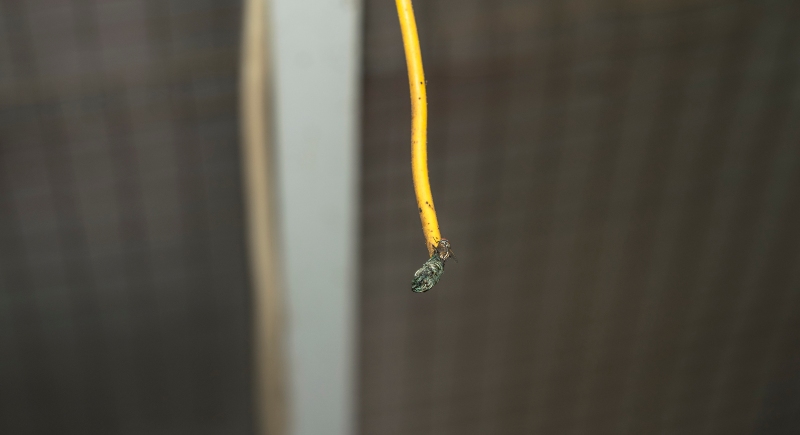
Understanding Electrical Wiring Issues
Electrical wiring problems often go unnoticed until a serious issue arises. These problems may result from do-it-yourself fixes, unlicensed work, or the natural wear and tear of an aging system. Loose connections, overloaded circuits, and exposed wires may seem minor but can lead to significant risks if not addressed. Recognizing these risks early can help you maintain a safe and functional electrical system.
The Dangers of Improper Electrical Wiring
Improper electrical wiring poses several dangers. One of the most concerning risks is fire. Faulty wiring is a leading cause of house fires, often due to overheating wires or short circuits. Electrical shocks are another serious concern, as they can range from minor discomfort to life-threatening injuries. Wiring issues can also damage appliances and electronics through power surges, leading to costly repairs or replacements. Additionally, inefficient wiring increases energy consumption, which can drive up utility bills unnecessarily.
Common Types of Improper Electrical Wiring Systems
Improper wiring systems manifest in several ways. Older homes may still have knob-and-tube wiring, which is outdated and lacks modern safety features. Aluminum wiring, commonly used in homes built in the 1960s and 1970s, is prone to overheating and poses fire risks. Misconfigured electrical panels that cannot handle the electrical load effectively are another common issue. Unprotected or poorly insulated wires present additional safety hazards, increasing the risk of shocks and fires.
Signs of Improper Electrical Wiring
There are several signs that can indicate problems with your electrical wiring. Frequent circuit breaker trips may suggest an overloaded system or a short circuit. Flickering or dimming lights often point to lose connections or inconsistent voltage. A burning smell near outlets or warm, discolored outlets are clear warnings of overheating wires. Buzzing noises coming from the walls are not normal and may signal arcing or loose wiring. Finally, sparks when plugging in appliances should always be taken seriously and addressed immediately.
Tips for Spotting Improper Electrical Wiring
- Pay attention to circuit breakers. If your circuit breaker trips often, it might mean your electrical system is overloaded or experiencing short circuits.
- Observe your lights. Flickering or dimming lights can be a sign of loose connections or inconsistent voltage levels.
- Notice unusual smells. A burning smell near outlets often indicates overheating wires, which require immediate attention.
- Check your outlets. Warm or discolored outlets could mean the wiring is generating excess heat, a potential fire hazard.
- Listen for unusual sounds. Buzzing noises from walls or outlets may signal arcing or loose wiring.
- Watch for sparks. Sparks when plugging in appliances are a red flag for faulty wiring that needs professional assessment.
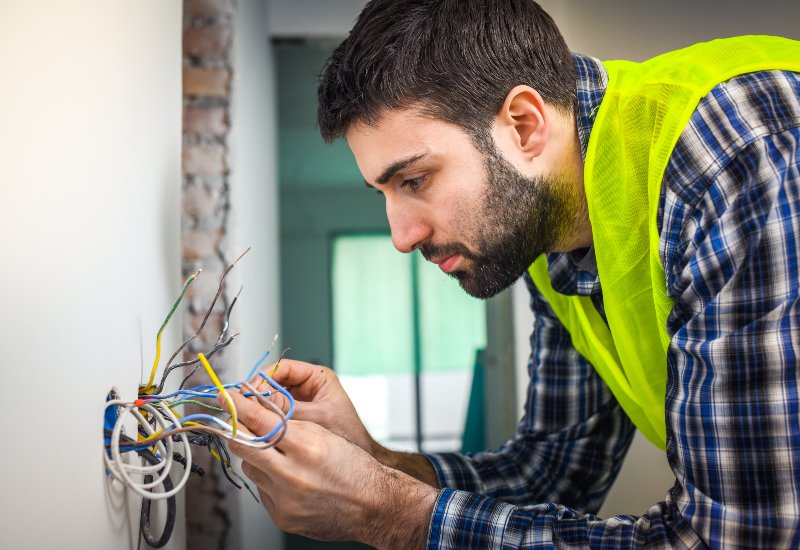
What Preventative Measures to Take
Taking preventative measures can go a long way in avoiding the dangers of improper wiring. Always hire a licensed electrician for installations, repairs, and inspections to ensure the work is done correctly. Regular inspections are essential to catch and resolve issues before they escalate. Upgrading outdated wiring systems improves both safety and efficiency. Additionally, avoid overloading circuits by distributing electrical loads evenly throughout your system. Whole home surge protection can also help protect your system.
Schedule an Inspection at Delta Electric Today
If you have concerns about your electrical wiring, now is the time to address them. At Delta Electric, we provide professional inspections and solutions to ensure your system is safe, efficient, and up to code. Whether you’re dealing with an obvious problem or simply want peace of mind, our team is ready to help.
Call Delta Electric
Don’t let the dangers of bad electrical wiring jeopardize your safety and security. Contact Delta Electric today to schedule an inspection or learn more about how we can help address improper electrical wiring. Located in the heart of San Jose, our commercial and residential electrical experts have been serving the community since 1982. Let us help you stay safe and ensure your electrical system is operating at its best.
-
An Introduction to Electrical Hazards
Introduction to Electrical Hazards
In our modern world, electricity is a fundamental part of daily life, powering homes, businesses, and industries. However, with its widespread use comes the potential for electrical hazards, which can cause significant harm if not properly managed. Understanding these hazards is important for everyone, from homeowners to industry professionals. In this article, we’ll discuss electrical hazards, how to identify them, and actions to eliminate them.
What are Electrical Hazards?
Electrical hazards are potential sources of injury or damage associated with the use of electricity. They include a wide range of risks, from electric shocks to electrical fires, and can result in severe property damage, injuries, or even fatalities.
Why It’s Important to Know About Electrical Hazards
Awareness of electrical hazards is key to preventing accidents. Understanding the risks associated with electrical systems helps individuals and professionals implement safety measures and practices to protect themselves, others, and their property. This knowledge is particularly critical in workplaces where employees regularly interact with electrical equipment.
Causes of Electrical Hazards
Electrical hazards can stem from a number of sources:
- Faulty Wiring and Equipment – Improper wiring, aging electrical infrastructure, and malfunctioning equipment can lead to dangerous situations.
- Overloading Circuits – Overloading power outlets and circuits can cause overheating and potentially start a fire.
- Lack of Grounding – Inadequately grounded electrical system increases the risk of electric shock.
- Exposure to Water – Electricity and water are a dangerous combination, heightening the risk of electric shock.
- Improper Installation or Maintenance – Electrical systems that are not properly installed or maintained can quickly become hazardous.
What Are Common Electrical Hazards?
There are five main types of electrical hazards:
- Electric Shock – Electric shocks can occur when the human body comes into contact with an electrical energy source.
- Arc Flashes and Blasts – These are intense and sudden releases of electrical energy into the air.
- Electrical Fires – These can be caused by overheated wires, equipment failures, or improper electrical installations.
- Electrocution – In high-voltage situations, fatal electric shocks can occur.
- Power Surges – Unexpected increases in electrical power can damage equipment and pose fire risks.
What Safety Standards Apply to Electrical Hazards?
Several safety standards and guidelines help to mitigate electrical hazards:
- National Electrical Code (NEC) – The NEC offers guideline for safe electrical installation and maintenance.
- Occupational Safety and Health Administration (OSHA) – OSHA sets standards for electrical safety in the workplace.
- International Electromechanical Commission (IEC) – This body provides international standards for electrical technologies and safety.
- Local Building Codes – Most jurisdictions incorporate NEC guidelines and may have additional requirements.
Contact Delta Electric for All of Your Electrical Work
Delta Electric, with its rich history and extensive expertise in electrical safety, is ready to help you to recognize electrical hazards and safely deal with them. Our commitment is to be more than just service providers. We aim to be educators and partners with you to avoid electrical hazards. By choosing Delta Electric, you are not just ensuring the safe operation of your electrical systems, you are also investing in the long-term safety and efficiency of your property.
Our professional team, armed with the latest tools, knowledge, and technology, is dedicated to delivering service that meets the highest standard of quality and safety Whether it’s conducting a routine inspection, offering tailored solutions, or providing emergency services, we are equipped to address all of your electrical needs.
Don’t let electrical hazards put your safety at risk. Reach out to us by completing our contact form or by calling us to speak to a member of our team. Gain the peace of mind that all is well with your electrical system.
Delta Electric is a fully licensed and insured electrical contractor that has served the San Jose, CA, area since 1982. Specializing in a range of services for residential, mobile, and commercial properties, we offer expert solutions for electrical installations and repairs. Our offerings include custom lighting, panel upgrades, remodeling, wiring, safety inspections, grounding, and much more. As a local, family owned and operated business, we pride ourselves on our community connections. We aim to deliver top-notch service, backed up by over three decades of experience in the electrical industry. We provide free estimates, reasonable rates with no hidden fees, 24 hour emergency services, along with a commitment to quality.
For more information about the products and services we provide, or to request service or a free estimate, contact us today via our website or give us a call at 408-495-2031. We look forward to serving you!
-
The Importance Of Electrical Inspection
Importance of Electrical Inspection in San Jose
In today’s fast-paced and increasingly electrically dependent world, the safety and efficiency of our electrical systems are more critical than ever. In this article, we will discuss the vital importance of regular electrical inspections, detailing why they aren’t just a regulatory compliance matter but a crucial aspect of maintaining a safe and efficient environment. Whether it’s a residence, a commercial property, or an industrial setup, understanding the intricacies of electrical inspections can impact the longevity of your electrical systems and, more importantly, ensure the safety of your home or business.
What Is an Electrical Inspection?
An electrical inspection is more than just a cursory glance at your electrical system; it involves a deep dive into every aspect to ensure total compliance and safety. This includes examining the integrity of electrical conduits, the condition of insulation, and the functionality of safety devices like circuit breakers and GFCI outlets.
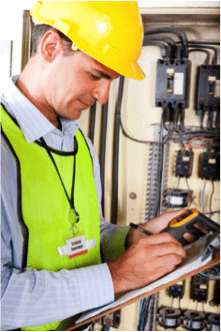
The Importance of Electrical Inspections
Electrical inspections are essential for safety, functionality, and efficiency. They identify potential hazards like outdated wiring, overloaded circuits, or safety violations. These inspections are vital in preventing electrical accidents, which can lead to fires or electrocution.
When to Do Electrical Inspections
Electrical inspections are recommended for any of the following situations:
- New Construction or Renovation – Inspections should be conducted before completing a new construction or renovation project.
- Property Purchase – This is usually a part of the home inspection that sellers often provide buyers before the sale is concluded.
- System Upgrades – Anytime you’re upgrading your electrical system or installing a major appliance, an inspection is warranted.
- Regular Maintenance – Inspections should be conducted on a regular basis, especially for older homes or buildings.
Benefits of a Regular Electrical Inspection
Periodic electrical inspections offer a number of benefits:
- Safety – The primary benefit is safety. Regular inspections help to identify and rectify any potential hazards.
- Compliance – Especially for commercial buildings, regular inspections will ensure that your property is in compliance with any local, state, or national electrical codes.
- Efficiency – Inspections can uncover any inefficiencies in your systems so that corrective action can be taken.
- Prevention – Regular inspections can prevent costly and dangerous electrical emergencies.
Reason Why You May Need an Electrical Inspection
You may need an electrical inspection as a result of any of the following:
- Age of the Property – Older properties may have outdated and unsafe wiring.
- System Malfunctions – Flickering lights, tripping breakers, or other malfunctions are signs you need an inspection.
- Post-Storm – After severe weather events, you should check for any damage to the electrical system.
- Renovations – Before and after a renovation is completed, an inspection is suggested.
What Does an Electrical Inspection Involve?
During an electrical inspection, a checklist is used to ensure that each of the following components is reviewed and is up to standard:
- Wiring systems and materials
- Electrical panels for any sign of wear
- Outlets and switches for proper operation
- Grounding systems
- Safety and security lighting
- Surge protection
- HVAC system electrical components
Schedule an Electrical inspection with Delta Electric
At Delta Electric, we specialize in both residential and commercial electrical inspections. Our team of licensed and experienced electricians is equipped to handle every aspect of your electrical system. By choosing us for your electrical inspections, you get:
- Expertise – We have decades of experience in handling complex electrical systems.
- Thoroughness – Our comprehensive inspections cover every aspect of your electrical system.
- Safety – When we sign off on an inspection, you can rest assured that your property is in line with the latest safety standards.
- Efficiency – During our inspections, we can identify any potential savings you may be able to realize on your electric bill.
Who to Call
Don’t wait for an electrical issue to become a dangerous problem. Contact Delta Electric today to schedule a detailed electrical inspection. Whether you need a residential inspection or a commercial one, our team is ready to ensure your property is safe, efficient and compliant.
Delta Electric is a fully licensed and insured electrical contractor serving the San Jose, CA, area since 1982. Specializing in a range of services for residential, mobile, and commercial properties, we offer expert solutions for electrical installations and repairs. Our offerings include custom lighting, panel upgrades, remodeling, wiring, safety inspections, grounding, and much more. As a local, family owned and operated business, we pride ourselves on our community connections, and we aim to deliver top-notch service, backed up by over three decades of experience in the electrical industry. We provide free estimates, reasonable rates with no hidden fees, 24 hour emergency services, and a commitment to quality.
For more information about the products and services we provide, or to request service or a free estimate, contact us via our website or give us a call at 408-495-2031. We look forward to serving you!
-
Fix a GFCI Outlet That Keeps Tripping
Fix a GFCI Outlet That Keeps Tripping
The average home has any number of electrical outlets that get used ever day. Some are basic, and some a bit more complicated. Your home likely has GFCI outlets in areas prone to moisture, such as kitchens and bathrooms. These are the outlets that have two little buttons, labeled “test” and “reset.” If you’ve ever plugged a hair dryer or a stand mixer into one of these and found that they don’t work, you’ve probably pressed each of these buttons, successfully reset the outlet, and gone about your business with the power source that you expected to work in the first place. But what if you press the reset button and nothing happens? Or what if you have a GFCI outlet that keeps tripping repeatedly? Delta Electric is here to de-mystify this everyday household item.
What is a GFCI Outlet?
A Ground Fault Circuit Interrupter (GFCI) outlet is a specialized device designed to protect against electrical shock by monitoring the flow of electrical current. Found mainly in areas with potential water contact, such as bathrooms, kitchens, and outdoor spaces, GFCI outlets are a standard safety feature in modern homes.
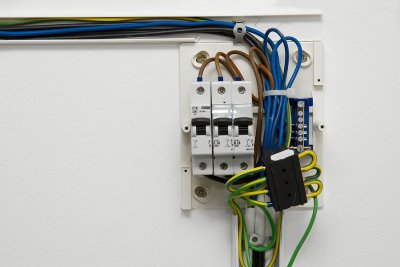
How Does a GFCI Work?
A GFCI outlet monitors the electrical current flowing in a circuit. It compares the current going to an appliance with the returning current. The device trips, cutting off electricity, when there is a difference between the two currents. This difference usually indicates a ground fault, where electricity is escaping the circuit – potentially through a person, leading to a dangerous shock.
Reasons Your Ground-Fault Circuit Interrupter Outlet Keeps Tripping
- Ground Faults: The most common cause for a GFCI tripping is a ground fault. This occurs when electricity is leaking somewhere along the circuit.
- Overloaded Circuit: When too many appliances are running simultaneously, it can overload the circuit, causing the GFCI to trip.
- Wet Conditions: GFCIs in areas like bathrooms or kitchens may trip due to moisture, as they are highly sensitive to water.
- Faulty Appliances: If an appliance is malfunctioning or damaged, it can cause leakage currents that trip the GFCI.
- Wiring Issues: Problems with the electrical wiring, such as loose connections or worn insulation, can lead to GFCI tripping.
How to Fix a GFCI Outlet that Keeps Tripping?
- Identify and Unplug Appliances: Start by unplugging all appliances on the GFCI circuit to see if the problem is with a specific device.
- Check for Moisture: Ensure that the outlet and surrounding area are dry. Moisture is a common cause of GFCI trips.
- Inspect Wiring: Look for any visible signs of damaged or loose wiring and have them repaired.
- Replace Faulty Outlet: If the GFCI outlet itself is faulty, it may need replacement.
How to Reset and Test a Tripped GFCI: Step by Step
- Locate the GFCI Outlet: Identify the tripped GFCI outlet. It will have two buttons: a test button and a reset button.
- Press the Reset Button: Firmly press the reset button. If the outlet does not reset, there may be a persistent ground fault or the GFCI may be defective.
- Test the Outlet: After resetting, press the test button. The reset button should pop out, indicating the GFCI is functioning correctly.
- Check Connected Devices: Plug in devices one at a time to determine if any specific appliance is causing the trip.
Solutions When Your GFCI Outlet Is Tripping
- Address Moisture Issues: Keep GFCI outlets and surrounding areas dry. Use covers for outdoor outlets.
- Spread Out High-Wattage Devices: Avoid overloading the circuit by spreading out high-power consuming appliances.
- Regular Testing: Regularly test GFCI outlets to ensure they are functioning correctly.
- Professional Inspection: If the problem persists, call Delta Electric. Our experienced technicians will diagnose and fix any underlying electrical issues.
Risks Associated with a GFCI Outlet that Won’t Stop Tripping
When a GFCI (Ground Fault Circuit Interrupter) outlet keeps tripping, it indicates potential risks and hazards that should not be ignored. Here are some of the key risks and hazards associated with a frequently tripping GFCI outlet:
- Electrical Shock: The primary role of a GFCI outlet is to prevent electrical shocks. If it keeps tripping, it might be due to a ground fault, which poses a risk of electrical shock, especially in wet areas like bathrooms and kitchens.
- Fire Hazard: Constant tripping can sometimes be a sign of an overloaded circuit or faulty wiring. Such conditions can create excessive heat in electrical wires, posing a fire hazard.
- Damage to Appliances: Fluctuations in power supply caused by a tripping GFCI can damage sensitive electronic equipment and appliances, leading to costly repairs or replacements.
- Hidden Electrical Problems: A GFCI that trips frequently might be indicating deeper, hidden problems in your home’s electrical system, such as damaged insulation, wiring faults, or issues with connected appliances.
- Water and Electricity Risks: In areas where water is present, such as bathrooms and kitchens, a failing GFCI increases the risk of electrical accidents, as these outlets are specifically designed to prevent electric shock in wet conditions.
Schedule an Inspection with Delta Electric
It is important to address the root cause of why the GFCI is tripping. This might involve inspecting and repairing the electrical wiring, replacing faulty appliances, or even replacing the GFCI outlet itself. If you have a GFCI outlet that keeps on tripping, you may have an underlying electrical issue that may present a safety risk to you or your home. Rather than guess about it, schedule an inspection with Delta Electric. During our service appointment, we will thoroughly inspect and diagnose your situation, providing an expert solution to make sure your property and family stay safe from potential hazards. We provide unparalleled service no matter what electric project you need our help with. Contact us today to schedule a service appointment. You can call us or fill out our online contact form for a speedy response.
-
How Electric Circuits Work
Types of Electrical Circuits in San Jose, CA
Professional Services for Electric Circuits in San Jose, CA
Your home’s electric circuit breaker is the heart of the electrical system. All your appliances, electronics, lighting, and electrical equipment rely on it to function correctly in order to provide power safely. A problem with your home’s electric circuit can cause a short-circuit, temporary or permanent power outage, fire, or explosion. You should only trust a licensed electrician to make repairs to or install a home electric circuit breaker. At Delta Electric, we offer professional, affordable electrical services in San Jose, CA. We can quickly diagnose problems with any type of electrical circuits and determine if you need to repair or replace your home’s circuit breaker panel.
What Is an Electrical Circuit?
An electrical circuit is the electric current that is supplied to a specific zone, or circuit, of your home. Your home’s main electrical panel or electric circuit breaker is split up into zones, and each one is wired to power different appliances, lights, outlets, and electric equipment on that circuit. If too much power is delivered to a specific circuit that can’t handle the load, the breaker will trip and shut off power to that entire circuit to prevent an overload or fire.
How Do Electrical Circuits Work?
The circuit breaker functions like an automatic switch. If the electric load to the switch is higher than what the circuit can handle, the switch turns off to protect your safety. It’s important for your main electrical circuit breaker to be sufficient to handle your power needs, or your breakers will constantly be tripped. That is a sign that you need to contact an electrician to upgrade your electric panel.
Electrical Circuit Basics
Each circuit breaker contains:
- A terminal
- A stationary contact
- A catch
- A simple switch
- An electromagnet
- A bimetallic strip
- Another terminal
Most circuit breakers contain two different types of trips that protect the circuit and your home:
- Thermal protection – This causes circuit interruption due to overheating.
- Electromagnet – This prevents circuit overloading due to a short circuit.
When a circuit breaker is flipped to the ‘on’ position, it allows electric currents to flow through the bimetallic strip to the electromagnet coil to the moving contact, across the stationary contact, and out through the upper terminal. As the bimetallic strip heats up with the current, it bends. If the circuit rises over a certain level, the bimetallic strip triggers the switch linkage and moving contact, thus breaking its connection to the stationary contact. As electricity flows through the terminals, the electromagnet is magnetized. If that current reaches unsafe levels, the magnet becomes strong enough to move a spool inside it, causing the switch linkage and moving contact to move and breaking the circuit.
Types of Electrical Circuits
There are several types of electrical circuits that can be installed in homes: single-pole, two-pole, three-pole, and four-pole. They are used in different applications, from home to commercial to industrial. The most common types of circuit breakers installed in homes are:
- Standard – Standard circuit breakers are either single- or double-pole. A single-pole circuit protects a single circuit and takes up one slot on your home’s electrical panel. It typically protects 15-amp and 20-amp circuits. A double-pole breaker protects circuits that power larger pieces of electrical equipment like ranges, air conditioners, and dryers.
- Ground fault circuit interrupter breaker (GFCI) – GFCIs protect you from electrical shock by shutting off an outlet if the measure of current going out to the load is more than the amount coming back to the panel. They are typically installed in areas where water is a hazard, such as in bathrooms, near sinks, in garages and kitchens, in crawl spaces or basements, and in outdoor receptacles.
- Arc fault circuit interrupter (AFCI) – AFCIs monitor circuits for dangerous electrical arcs. This prevents dangerous housefires. Almost every room in your house should have AFCI protection, other than bathrooms and basements.
- AFCI/GFCI dual-function breaker – AFCI/GFCI dual-function breakers are required in kitchen and laundry rooms. This offers protection from electrical arcs and moisture or water damage, thus protecting you from fires and electrocution.
Contact Delta Electric for All Your Electrical Work
Call us today or contact us online if you need electrical work in San Jose, CA. Our experienced, licensed electricians specialize in residential and commercial electrical work, and can conduct a home electrical safety inspection to determine if there are any risks or dangers in your home. We can also upgrade electrical panels and repair electrical circuit breakers.
RECENT POSTS
categories
- Uncategorized
- Delta Electric
- Commercial Electrical
- Residential Electrical
- Electric Circuits
- Dedicated Circuits
- Circuit Breakers
- Electrical Panels
- Electrical Wiring
- Safety Inspections
- copper wires
- Electrician San Jose
- Trained Electricians
- Electrical Services San Jose
- Malfunctioning Electrical Outlets
- Circuit Breaker
- Grounding
- safety
- Flickering Lights
- Arc Fault Breakers
- electrical system
- Aluminum Wiring
- Circuit Interrupters
- House Surge Protection
- Zinsco Panel Warnings
- Wiring Conversion
- GFCI outlet
- professional electrician
- Knob-and-Tube Wiring
- modern home electrical system
- Fuses
- Electric Car Charger
- Electrical Repair
Archives
2025
2024
2023
2018
2017
- December (4)
- November (4)
- October (5)
- September (4)
- August (4)
- July (4)
- June (4)
- May (4)
- April (4)
- March (3)
- February (4)
- January (3)
2016
- December (3)
- November (4)
- October (4)
- September (4)
- August (4)
- July (4)
- June (4)
- May (4)
- April (4)
- March (4)
- February (4)
- January (4)
2015
- December (4)
- November (4)
- October (4)
- September (4)
- August (3)
- July (4)
- June (4)
- May (3)
- April (4)
- March (4)
- February (2)
2014
- December (3)
- November (4)
- October (4)
- September (6)
- August (2)
- July (3)
- May (2)
- April (1)
- March (2)
- February (1)
- January (1)

